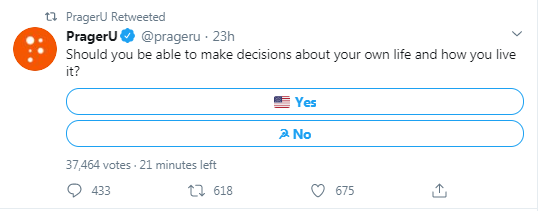
For a long time American conservatives liked to say that liberals were the party of "moral relativism." The conservatives stood up for the old fashioned moral truths, while liberals believed "if it feels good do it."
They weren't *entirely* wrong about this, but...
They weren't *entirely* wrong about this, but...
...the American Right has long suffered from its own form of moral relativism in the economic sphere.
Specifically, the idea that outcomes in the marketplace are somehow above moral judgement.
Specifically, the idea that outcomes in the marketplace are somehow above moral judgement.
Right-leaning economists tend to believe that the market produces the best outcomes because it rationally aggregates the subjective preferences of all the actors involved. Whatever exchange value people are willing to give up to get something, that is what it is worth, they say.
The problem with this way of thinking is that not all wants and preferences are of equal value.
Some people want food to feed their children.
Some people want another yacht.
Some people want heroin.
Some people want food to feed their children.
Some people want another yacht.
Some people want heroin.
The moment you admit there is such a thing as human *needs* (i.e., something whose value is not just one of an infinite number of possible tradeoffs), it becomes possible to morally evaluate how good the economy is at providing them.
Some free-marketers do not like this at all.
Some free-marketers do not like this at all.
One popular economics textbook used in college classrooms (not naming names) argues that "needs" aren't a useful concept because there are always alternatives or substitutes.
For example (it really said this), people could always forgo health care and try prayer instead.
For example (it really said this), people could always forgo health care and try prayer instead.
Far be it from us to discourage prayer.
Also, people need health care.
Also, people need health care.
This the sort of relativism we're talking about.
Note that we're not saying government can or should centrally plan the allocation of every resource.
What we're saying is that free exchange doesn't by definition produce the best objective outcome.
Note that we're not saying government can or should centrally plan the allocation of every resource.
What we're saying is that free exchange doesn't by definition produce the best objective outcome.
https://twitter.com/FyodorGaribaldi/status/1322372550823878658
If you deny this, it leads to some very strange places.
At the far extreme, you end up like the libertarian writer who argued opioid addicts overdosing was fine because they clearly subjectively valued their lives less than getting high.
At the far extreme, you end up like the libertarian writer who argued opioid addicts overdosing was fine because they clearly subjectively valued their lives less than getting high.
And after all, who are we to say they're wrong?
Likewise, if exchange value as an expression of subjective preferences is the only value that counts, then a billionaire who will pay a million dollars for a live-saving cancer treatment "values" it more than someone who can't afford to pay anything.
This is a problem if you think both the billionaire and the regular stiff have are human beings of inherent value and dignity.
The other problem with this sort of economic relativism is that it assumes economic growth is an end in itself, since it allows people more opportunities to exchange for the things they want. GDP becomes God.
But the increase of market activity doesn't *necessarily* make society better off.
Much of the growth in our economy in recent decades has come from the monetization of things people used to do for themselves at home: cooking, childcare, home repairs, and so on.
Much of the growth in our economy in recent decades has come from the monetization of things people used to do for themselves at home: cooking, childcare, home repairs, and so on.
Economists tend to assume this good because it creates jobs and allows people to specialize in their own economic activity without being distracted by things like cooking their own meals or fixing their own cars.
On the other hand, maybe we're losing something along the way?
On the other hand, maybe we're losing something along the way?
Here's what RFK had to say about the GDP:
"It counts special locks for our doors and the jails for the people who break them. It counts the destruction of the redwood and the loss of our natural wonder in chaotic sprawl.
"It counts special locks for our doors and the jails for the people who break them. It counts the destruction of the redwood and the loss of our natural wonder in chaotic sprawl.

"It counts napalm and counts nuclear warheads and armored cars for the police to fight the riots in our cities...[it counts] the television programs which glorify violence in order to sell toys to our children."
Yet the gross national product does not allow for the health of our children, the quality of their education or the joy of their play. It does not include the beauty of our poetry or the strength of our marriages...or the integrity of our public officials.
It measures neither our wit nor our courage, neither our wisdom nor our learning...it measures everything in short, except that which makes life worthwhile.
And it can tell us everything about America except why we are proud that we are Americans.
And it can tell us everything about America except why we are proud that we are Americans.
Markets are powerful tools for generating wealth.
But markets, by themselves, can't generate the moral underpinnings they need to thrive.
The economy is made for human beings. We are not made for it.
But markets, by themselves, can't generate the moral underpinnings they need to thrive.
The economy is made for human beings. We are not made for it.
The upshot of this:
If you're willing to decry the decline of the two-parent family, good for you. Kids need a mom and a dad (although this takes nothing away from parents who make heroic sacrifices in less ideal circumstances).
You know what else kids need?
If you're willing to decry the decline of the two-parent family, good for you. Kids need a mom and a dad (although this takes nothing away from parents who make heroic sacrifices in less ideal circumstances).
You know what else kids need?
They need parents who have the opportunities necessary to build a stable home. They need a community and a country who value families enough to help make sure that happens.
That doesn't always mean government. But sometimes it may.
That doesn't always mean government. But sometimes it may.
Conservatives are happy to call out cultural trends that contribute to the decline of family values. Often they're right.
But they have a huge blindspot for how economic stresses weaken our families.
But they have a huge blindspot for how economic stresses weaken our families.
The truth is, if market outcomes are making it harder for ordinary Americans to marry, stay married, and raise children in stable homes, then it's possible something is wrong with the market.
But we have to break out of our economic relativism to even diagnose the problem.
But we have to break out of our economic relativism to even diagnose the problem.
We'll wrap this overlong thread up with a story about two economists:
Wilhelm Roepke (Swiss-German, one of the architects of the German social market econony) and Ludwig von Mises (Austrian, one of the founders of the Austrian school of economics and an arch-libertarian).

Wilhelm Roepke (Swiss-German, one of the architects of the German social market econony) and Ludwig von Mises (Austrian, one of the founders of the Austrian school of economics and an arch-libertarian).


One day Röpke and Mises were strolling around the outskirts of Geneva during WW2, as one does. They saw all the little garden vegetable plots that the the government had allocated to the citizens in order to help with wartime rationing. 

Ordinary working people from the city were busy planting and weeding in their gardens. But Mises shook his head.
"A very inefficient way of producing foodstuffs!" he complained.
“Perhaps so,” Roepke replied. “But perhaps a very efficient way of producing human happiness.”
"A very inefficient way of producing foodstuffs!" he complained.
“Perhaps so,” Roepke replied. “But perhaps a very efficient way of producing human happiness.”
• • •
Missing some Tweet in this thread? You can try to
force a refresh






